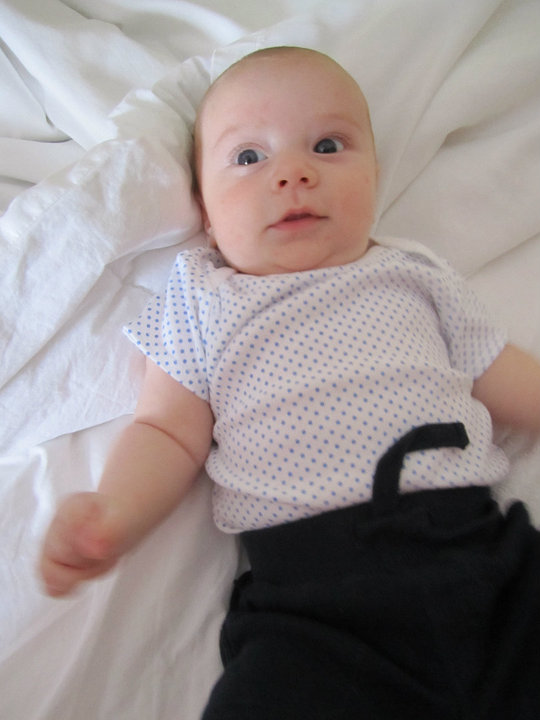“She can’t be hungry again!”
If you have breastfed a newborn, or are breastfeeding a newborn, perhaps you’ve either thought these words and/or had somebody say these words to you. There seem to be times during those first few months when babies just want to nurse for hours without stopping. I remember when my first son was about 6 weeks old, there was one evening when my sister was visiting and all he did was either nurse or cry. If he wasn’t doing one, he was doing the other. And for me, it was so frustrating because I wanted to just relax and talk with my sister while he slept. It was also frustrating because I felt like there was something wrong. I couldn’t believe that he would need to nurse this much and I began to question if I had enough milk or if he was allergic to something I was eating. This repeated itself for a few evenings in a row. Nurse, fuss, nurse, cry, nurse, nurse…you get the picture.
I’ve since learned that this cluster feeding is normal in newborns and infants. But I wish I had known this before it happened! We’re so often told that babies need to breastfeed every 2-3 hours or 8-12 times in 24 hours, but often not told that there will be times when babies want to breastfeed more than this. It’s quite likely that your baby, as he grows, is nursing a lot to tell your body to start producing more milk to keep up with his growing body. If you respond to your baby’s nursing needs, your milk production will increase to meet him where he is. If you supplement with pumped milk or formula, your milk production won’t increase to meet his needs. If you can truly tune into your baby, listen to her, and find a way to just rest with her, nurse her, and soothe her through those times, she will learn to trust you, you’ll learn to trust her, and your breastfeeding relationship will be strengthened.
I know that this is easier said than done. I felt trapped with my first newborn when this was happening. The constant crying and nursing was exhausting for me and the worry about what was wrong made it even worse. If you can try some self-talk to change your mindset about these times, you might feel a little bit better. For example, try saying to yourself, “baby is telling me she needs to nurse right now and that’s OK. I can meet this need”, instead of, “ugh, why does she need to nurse again. She can’t possibly need to nurse!”
This is also a time when your support systems can come up big for you. Talk with your partner or the person who is supporting you at home about your needs during those times. Can they make sure that you’re comfortable in bed or on the couch, with nourishing food and drink, and something great to read, listen to, or watch? If you need company, can they sit with you so you don’t feel so isolated? During the fussier moments when the baby isn’t taking the breast, can they rock, sway, or bounce the baby for you and let you have a quick break? And please try to fill your cup when the cluster feeding isn’t happening. Remember your self-care routines and hold yourself accountable to taking care of yourself.
One of my favorite affirmations is, “It’s OK if this is hard. It will get easier.” It’s OK if you’re really struggling with this and you wish it were different. It’s hard and there’s no way around it. It really will get easier. These early breastfeeding days can ask a lot of us as mothers and your babies are so very lucky to have you responding to their needs and teaching them that they can trust you to be there.
*Of course, if you are concerned that something might need more professional attention in terms of your baby’s latch or your milk production, please don’t hesitate to contact an IBCLC or your care provider. This is especially true if your baby isn’t producing adequate wet and soiled diapers.*

